Ready to turn your DNA results into real discoveries?
Solve Your Family Mysteries with Confidence
in the DNA Skills Workshop
The fun masterclass for building your family tree confidently and accurately using DNA
Your Skills experience begins February 2!
Hear what Lori had to say about her recent Skills experience.
Go from What Now? to I Know Exactly What to Do Next
You took that DNA test with such excitement. You've explored your matches, maybe even spotted a few relatives. But what do you do next? Wouldn't you like to USE your results to build your family tree and explore any family mysteries?
To do that, you need to learn a certain set of skills. You need to learn which DNA matches may hold the clues you need, and how to harvest those clues and fit them all together. You can absolutely learn these skills--but it takes time, practice and application to get all the concepts down and then know when to use each tactic.
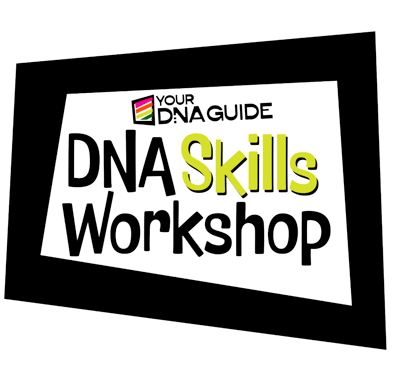
When You Learn These Skills in the DNA Skills Workshop,
Here Are the Kind of Successes You May Experience:

Jo Roth
"While trying to solve my own family mystery, I learned one of my father's close matches was adopted. I followed all the steps from the course and in 24 hours had solved the mystery of who BOTH of his parents were! Woohoo! This was amazing!"
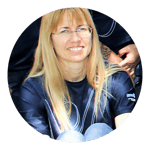
Ann Greitzer
"I found my 3x great grandparents! The DNA Skills Workshop helped me identify a distant match whose family tree is packed with Polish records that are not online anywhere—and the tree identified my missing ancestors."

Judy Line
"I confirmed a family rumor about the identity of my grandfather's birth father —and I also got the bonus of solving the mystery about who his mother’s parents were."

Donna Jansak
"In the process of looking for my own mystery ancestor... I ended up helping someone else find theirs."
You'll learn how to...
- Verify your family tree, fill in missing information, and make your tree more DNA-friendly
- Decipher your ethnicity results to identify key matches or geographic locations that might be important in your research
- Find shared matches at each testing company to identify ancestors and relationships
- Distinguish and double-check genetic vs genealogical relationships to determine how you are connected to your matches
- Find a match who can help you identify a missing ancestor on your tree
- Use essential DNA tools, such as shared matches, the Shared cM Project, and AncestryDNA's dot system
- Create groups of DNA matches organized into progressively more specific family groups
- Build quick and simple trees to organize and learn from your DNA matches
- Use DNA Painter's "What Are the Odds?" (WATO) tool: DIY Skills introduces WATO and All-In Skills includes your unique, in-depth WATO Course and accompanying Workbook
- The All-In Skills experience also includes our unique Shared Matches of Matches Course
Payment plans available for both Workshop options.
Already purchased the WATO or Shared Matches of Matches courses? See below for special pricing on All-In Skills.
Why the DNA Skills Workshop Works: Our Proven SPIN Process
4 Steps That Take You from Overwhelmed to "Oh--I've got this!"
There's a lot to learn about working with DNA matches--and years of experience has taught US how to teach YOU.
We can guarantee you'll learn how to DO the DNA because we've seen it work with hundreds of students.
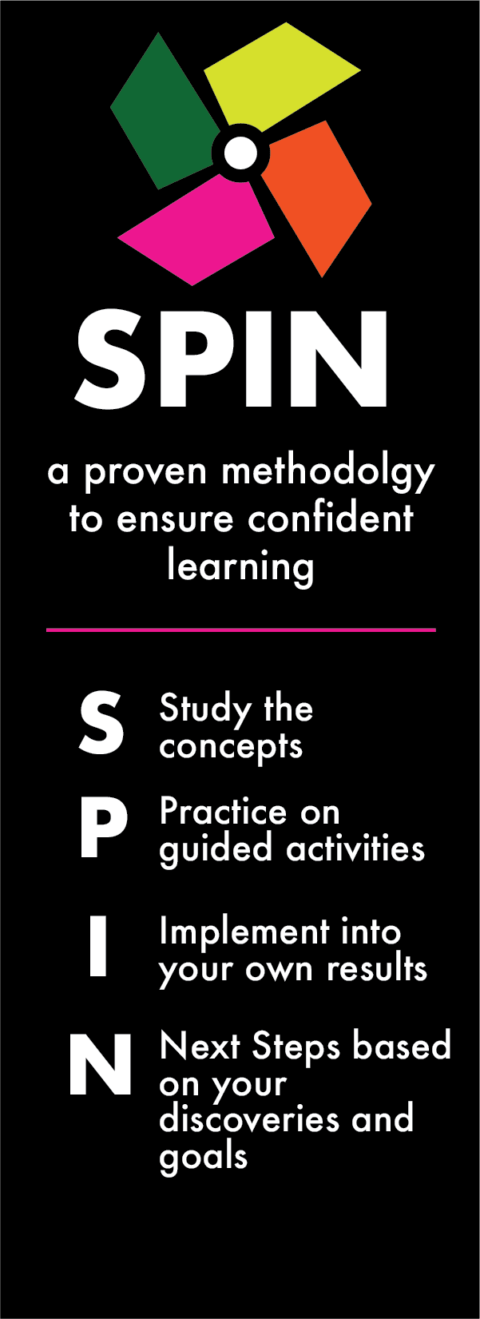
Study
Learn DNA strategies in a series of shorter videos and other resources that build your understanding, one concept at a time. Watch the videos as many times as you like! They’re closed-captioned, with full transcripts.
Practice
Try and try again! Classwork and homework will give you plenty of opportunities for concepts to “sink in.” Case studies let you see how each concept plays out with real-life DNA questions.
Implement
Apply what you’ve learned with your own DNA test results! This is the most fun part. Research logs help track your progress. Expert-monitored chat boards and peer conversations can help you apply the concepts to your unique situation.
Next Steps
You’ll get plenty of instructions on where to go next! You will learn about lots of different options, depending on your situation, and how to choose what to do to continue your unique DNA journey.

Trudi Becht
"The course took me from base-level understanding... to competent and strategic use of shared match cM data in combination with a variety of available research tools at testing sites and the DNA Painter site. I have moved from randomly sifting through matches to effective execution of a research goal."
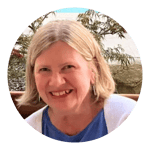
Tanya Patterson
"These classes are the cream of the crop. Your SPIN method is incredibly helpful and I appreciate all of the ways our learning is reinforced. You make the material accessible--even for those of us who aren't "science people."
Pick the Perfect Skills Experience for YOU:
DIY Skills for independent, go-at-your-own pace learning or
All-In Skills for a fully-supported, above-and-beyond experience

You'll Be Learning From the Best
Hi, I'm Diahan Southard, and I absolutely LOVE helping people turn DNA confusion into family history victories! As the founder of Your DNA Guide and a globally-recognized genetic genealogy educator, I've spent years perfecting the art of making DNA analysis both understandable and genuinely fun.
Here's what makes our approach special: I believe learning should be enjoyable, not intimidating! That's why you'll find colorful visuals, helpful analogies (think of me as your friendly DNA translator), and a wonderfully supportive community where every breakthrough—big or small—gets celebrated.
Plus, you'll have our amazing expert coaching team providing personalized guidance and cheering you on throughout your DNA journey. We're here to make sure you succeed!
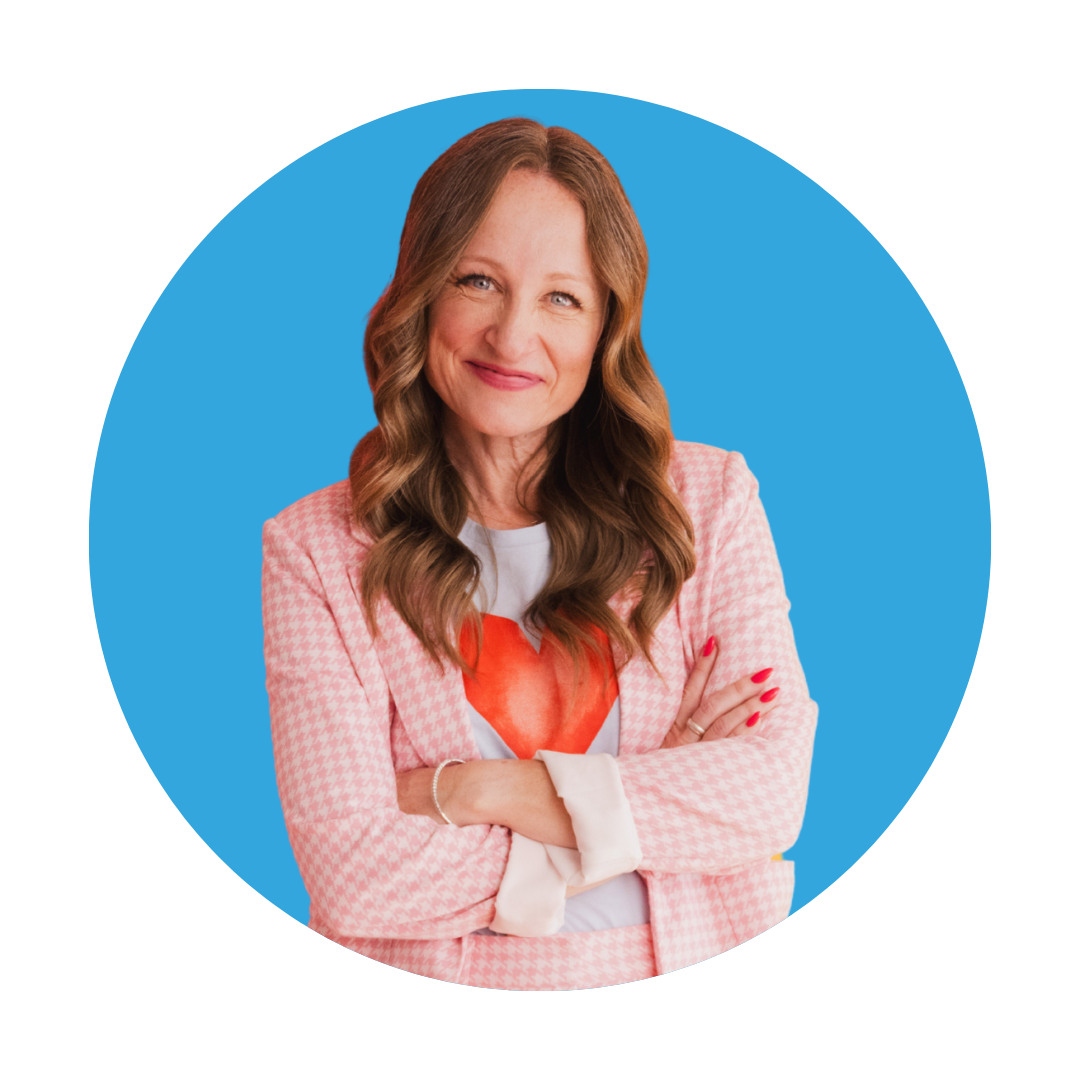
Diahan Southard
Founder and CEO of Your DNA Guide
Frequently asked questions
I love Diahan's classes and webinars. How is the DNA Skills Workshop different?
The DNA Skills Workshop brings the best aspects of her classes and webinars into an extended, hands-on format where you’ll learn in an interactive setting, work on real-life examples, follow up (live!) with your questions, and work on MORE examples to be sure your learning experience is complete and thorough. It won’t just be a fun-but-onetime event, but rather a series of progressive, hands-on tutorials and experiences. Plus, Diahan will be checking your progress to make sure you are learning all the things you need to.
I'm a beginner. Am I ready for the Workshop?
You’re ready for the DNA Skills Workshop if you have the following:
You’ve got autosomal DNA test results, preferably from AncestryDNA (and you’ve got access to the Pro Tools) or it could also work well with MyHeritage DNA (if you’ve got access to the advanced DNA tools).
You’ve spent some time exploring your results–you’re at least an advanced beginner with DNA–and you’re super curious/motivated to learn MORE.
You have appropriate goals in mind, such as 1) see how genetic evidence supports your genealogical research 2) identify a mystery match and/or 3) pursue a brick wall ancestor at the 3x great grandparent level or closer. (If you don’t have a missing ancestor in that timeframe, but you want to learn the process, you can pretend you do not know an ancestor).
Ideally, you want to have some DNA matches within the range of whatever question you’re trying to answer. For example, to identify a close birth relative (parent or sibling), you should have DNA matches who share 1200+ cM with you. If you don’t, then you will still be able to learn about your extended family, but you may not be able to identify a parent yet. Similarly, if you want to find your 2X great grandparents, you will need 3rd-4th cousin matches. If you do not have the matches you need, you can still make progress in your research, but you may not find that missing ancestor right away.
You have time to dive in. Plan for about 6+ hours a week (honestly, most students get so excited they spend even more time because it's actually fun!).
What are the major differences between DIY and All-In Skills?
The curriculum of the Skills Workshop is the same for both.
The biggest distinguishing factors (other than cost) are how you want to learn and inclusion of the WATO and Skilled Matches of Matches courses (with coach support).
With All-In Skills, you will have tons of support from our expert coaches: both one-on-one and group coaching sessions. You will have several live Q&A sessions to give you more structured milestone check-ins and interactive support. There are scheduled breaks, but the pace is consistent and you will want to commit to keep up with the material. You will also have fully-supported WATO Course and Shared Matches of Matches Course experiences with live Q&A sessions and integration of the use of these strategies and tools in the context of your Skills education.
Only All-in Skills comes with the Skills Swag Box. It includes a print edition of Your DNA Guide–the Book and sturdy bookmark; full-color, print edition of the DNA Skills Workshop Workbook; the Plan tri-fold summary brochure; highlighter and Your DNA Guide pen; and a soft, sturdy Your DNA Guide tote bag to hold all these goodies. These are delivered around the world, wherever shipping capabilities allow (we may need a little time to get these to you outside the United States).
DIY Skills still requires dedication and a time investment. Without set check-ins, you will need to manage your own time. You do have access to the expert coaches on the chat boards for questions about what you're learning, but you won't have that one-on-one live interaction included with All-In. If you want to complete the course by the one live Q&A session, you will need to do it in 10 weeks (which is absolutely possible).
A final difference between the two is that DIY students keep access to their course for 6 months, while All-In Skills Students keep access for a full year.
I haven't taken a DNA test. Can I still take the DNA Skills Workshop?
By the time the Workshop starts, you should already have autosomal DNA test results in hand. You’ll need them because this is a hands-on learning experience. Optimally, you’ll be working with your own DNA test results, but you can also use someone else’s, as long as you have their permission and the login access.
The cost and ordering of DNA testing itself is not included in the course. See Workshop prerequisites below about a testing company recommendation.
How long does the DNA Skills Workshop last? Do I get to keep access forever?
Let's break it down.
DIY Skills: We recommend that you pace yourself to complete the Workshop materials in 10 weeks, after which time there will be a live Q&A to address any lingering questions you have. That said, you'll have access to the course for a full six months, during which time you'll have access to coaches on our online chat board to answer questions pertaining to the Workshop material. After six months, your access to Workshop materials ends, including video tutorials, other recordings, and chat boards. You will keep your digital editions of Your DNA Guide--the Book and the Skills Workbook.
All-In Skills: You will be given a coach- supported schedule and pacing to complete the Skills Workshop in nine weeks, followed by a break week, then four weeks each for supported, active learning in the SMoM and WATO courses. You will be given generous windows for scheduling individual coaching sessions during these weeks. After that season of active learning, coaches will continue to monitor online chat boards for a total of six months (since Workshop start date). You will have access to All-In Skills Workshop materials, including video tutorials, other recordings and chat boards, for a full year. You will keep your copies of Your DNA Guide--the Book and the workbooks for Skills, SMoMs and WATO.
What's the schedule? How much total time should I plan to spend on it?
Both DIY and All-In Skills students should plan to spend at least 5 hours per week watching prerecorded video tutorials, working on case studies and homework and solving your own DNA mysteries. Some people may work more quickly than others, and some may want to dive deeper than others. That part is up to you. About 60% of Skills participants report spending more than 5 hours a week on the course, and some report spending more than 10 hours.
Your live-session schedule will depend on whether you enroll in DIY Skills or All-In Skills.
DIY Skills has one live Q&A session on Monday, March 30 from 2:00-3:00 pm ET.
All-in Skills has a live, one-hour Kick-off meet-and-greet session on Tuesday, February 3, and live one-hour Q&A sessions on February 24, March 17, May 5, and June 2, all at 2:00 pm ET. All-in Skills also has a 2-hour live, case study session on April 8 at 2:00 pm ET.
All-in Skills students will be given more information about scheduling their 30-minute one-on-one coaching sessions after enrolling; these may be scheduled during generous windows of time during the Workshop, according to the availability of our coaches.
What if I can't attend a live session?
Life happens, even with the best intentions! While it will probably be more fun to attend live, don’t worry if something comes up. These sessions will be recorded.
Recordings will be made available in your personal courses page for the duration of the course access period (six month for DIY and one year for All-In).
Because the recordings are available, refunds will not be granted due to unexpected changes in your schedule. (See our refund policy.)
What technical requirements are necessary? Is there a textbook?
Each Workshop takes place online. You’ll need a fast, reliable internet connection for learning sessions and for additional learning on your own time.
Those who have tested at AncestryDNA and have access to the Pro tools will likely have the most rewarding experience (both because of the advanced DNA analysis tools and its large database of testers).
For your individual coaching session, you will need to be able to access your family tree and DNA results on a device with a microphone and camera (and know how to use them). You’ll need access to your DNA test results on whatever testing site you’re using.
Your primary textbook is Your DNA Guide—the Book . If you take DIY Skills, you'll receive the eBook edition. If you take All-In Skills, you’ll receive both the print and eBook editions. You’ll also receive a Skills workbook and additional reference materials that support your learning.
Do you offer payment plans?
We are pleased to support various third party payment plan options on our checkout page!
All payment plan options are from third party companies. Your payment plan availability and amount may vary based on your personal financial situation or your place of residence. Please explore these options thoroughly in order to make the decision that fits your budget best. If you are not familiar with these companies, please check out their websites. If you have any questions about these options, please contact them directly for assistance.
What is the special pricing for All-In Skills if I've already purchased the WATO or Shared Matches of Matches Course (or both)?
If you've already enrolled in the WATO Course or the Shared Matches of Matches (SMoMs) Course, you'll receive $50 off your purchase of All-In Skills experience, which comes with both of those Courses. If you've purchased them both, you'll receive $100 off. This doesn't reflect the full price you paid for those Courses because this experience will be more coach-supported than the on-demand WATO or SMoMs Courses, plus there will be dedicated Q&A sessions for each of these AND you will be able to ask your coaches questions about that Course material if you choose during one of your one-on-one coaching sessions. You'll also receive physical copies of the WATO and SMoMs Course workbooks.
If you purchase All-In Skills and you previously enrolled in WATO and/or SMoMs, email us at info@yourdnaguide.com and we'll adjust your payment to reflect your discount. There is no corresponding discount for DIY Skills, which does not include access to these courses.
When will the DNA Skills Workshop be offered again?
.png?width=300&height=212&name=Guarantee%20(1).png)
It works! Or your money back
I am so confident that my Workshops and Courses will make YOU more confident in using DNA for family history that I offer a money-back guarantee. If after 6 months from the start date of a Your DNA Guide Academy offering in which you have fully participated (meaning you have watched and marked “complete” each video tutorial, completed the classwork and homework, and have asked for help on the discussion boards), but are not more confident in this ‘using-DNA’ thing, I will refund the full cost. Read more about our refund policy.
Ready to Start Your DNA Skills Adventure?

Debbie Hayner
"This is a fantastic course. Now that I am at the end, I realize how much I really do know [now]. Diahan and the coaches are extremely knowledgeable, and it's wonderful to learn from folks who really know DNA. Thank you!!"
Core Concepts
Analyze your family tree
Describe the role DNA can play in verifying what is known or filling in missing information in your family tree
Understand the importance of having a tree associated with DNA and how this affects available tools
Describe role of descendancy research
Describe nuts and bolts of how ethnicity testing works
Describe how ethnicity results can be used to help identify key matches or geographic locations that might be important for your research
Lesson 1: Known Matches
Define Most Recent Common Ancestor
Define Generation of Connection
Describe how cMs provide information about relationships to DNA matches
Describe how to use the histograms at the Shared cM Project
Use the shared matches tool at each company to identify shared matches
Describe how known matches create genetic networks that can be used to understand family relationships
Describe half-relationship
Describe a removed relationship
Use a grid and labeling system to identify generation of connection
Apply known matches concepts to your own research question
Lesson 2: Genetic Networks
Describe cheating tools at Ancestry (ThruLines®), MyHeritage (Theory of Family Relativity™) and 23andMe (DNA tree)
Describe requirements for ThruLines® at Ancestry
Describe pre-requisite for accessing Theory of Family Relativity™ at MyHeritage
State focus of ThruLines®
State focus of Theory of Family Relativity™
State rationale for verifying information in cheating tools
Use the Shared cM Project to evaluate matches
Describe what the % mean for potential relationships in the Shared cM Project
Investigate matches that are outliers on the Shared cM Project
Describe the process of labeling genetic networks using known matches, cheating tools, and color labels
State what kind of cousin will identify the desired genetic network
Label genetic networks for your research project
Describe steps in splitting a genetic network
Split the genetic network for your own research project
Describe the Bottoms Up strategy for splitting a genetic network when there are no identified matches to split the network
Use the Bottoms Up strategy if required for your own research project
Lesson 3: Finding a Best Mystery Match
State the three qualities of a Best Mystery Match
Identify the Best Mystery Match for your research project
Define Most Recent Common Ancestor
Define Generation of Connection
Find the Generation of Connection using available information
Add labels to match’s trees to support analysis
Find the Generation of Connection for all mystery matches in the genetic network for your project
State rationale for expanding the network
Describe risks of expanding the network with matches other than the Best Known Match
Incorporate segment size into expanding the network
Expand the network for your project if needed
Lesson 4: Trees for DNA
Describe a Quick and Simple Tree for genetic genealogy research
State places to find information for a Quick and Simple Tree
Create a Quick and Simple Tree for your research project
Create floating branches for DNA matches in your tree
Describe the What Are The Odds (WATO) tool at DNA Painter
Use WATO for your project if you have an appropriate DNA network
Lesson 5: 2-Hour Interactive Case Study (All-In Skills only)
Use the Your DNA Guide process to address a research question in real time, during a live, interactive event, so you can see how everything you've learned in the DNA Skills Workshop works together in a real-life situations.
WATO and Shared Matches of Matches Courses (All-In Skills only)
Your All-In DNA Skills Workshop experience includes nested versions of our popular WATO Course and Shared Matches of Matches Course. While these courses are also available separately, we've included them in the All-In experience to provide even more robust coach support AND so discussion of these vital "Next Steps" learnings can be integrated into your overall Skills experience.
In the WATO Course, you'll take your DNA learning to the next level with curriculum, coach support and a live Q&A to help you master WATO, the powerful What Are the Odds? tool from the DNA Painter websites, one of the most important 3rd-party genetic genealogy tools out there--and one every genetic genealogist eventually needs. You'll learn what key information you need to use WATO more successfully, and how to input and save data. You'll practice step-by-step processes for using WATO in real case studies, so you can follow these steps with your own research. You'll learn how to use the hypotheses tools, along with other WATO settings and actions, and when you might need WATO plus (the premium version of the tool).
In Shared Matches of Matches: A DNA Grouping Strategy Course, you'll learn to make more DNA discoveries, more confidently and in less time, with less confusion, using the breakthrough Shared Matches of Matches (SMoM) tools available at your testing company AND our breakthrough process. You'll receive progressive instruction on how to organize your data and focus on the matches that matter most, starting with “right-now” strategies and moving to more advanced ones. You'll receive a series of carefully-designed research logs to keep track of everything, along with instructions on applying strategies and observing patterns and trends can help you more quickly and precisely define the branch of interest in your match’s family tree, so your genealogy research will be much more efficient.
